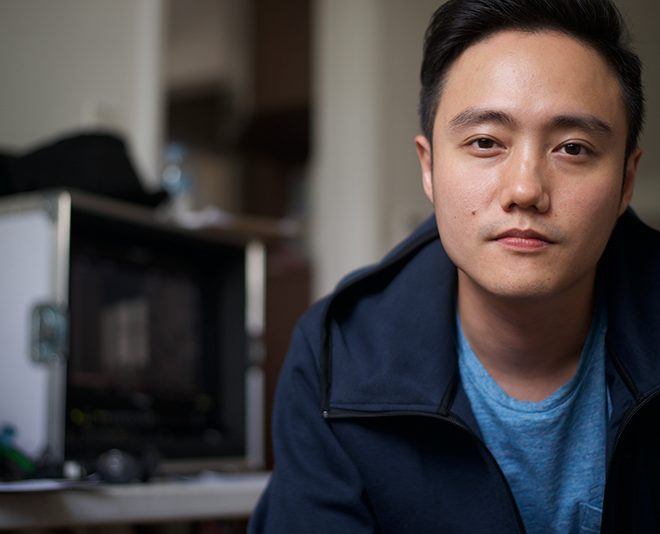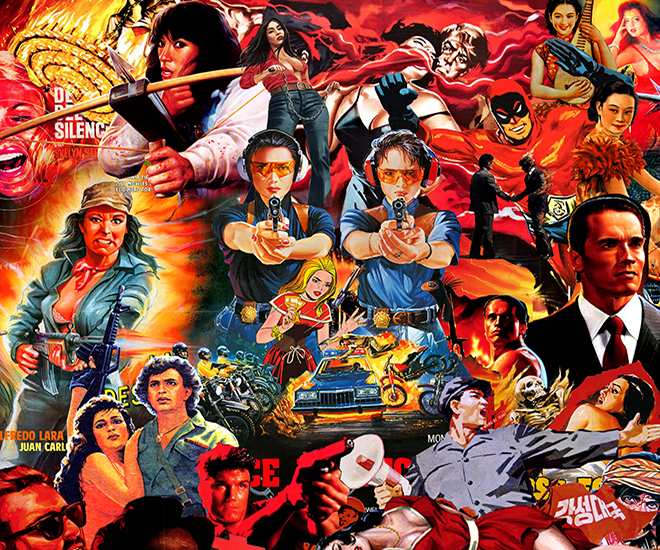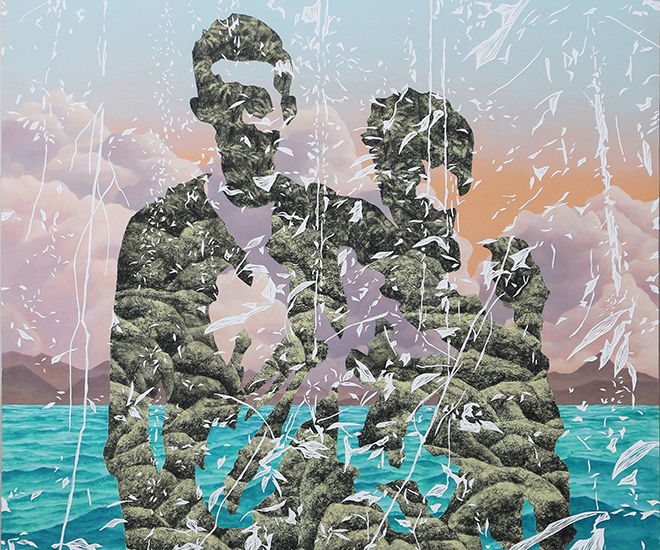Interview: Filmmaker Boo Junfeng
Art Republik speaks to Boo Junfeng about twice making it to Cannes with his second feature film.

At only 32, Singaporean filmmaker Boo Junfeng has had two films selected for the prestigious A-list Cannes Film Festival. His debut feature film, Sandcastle (2010) made a splash as the first Singaporean film to be selected for the International Critics’ Week section and reviewed as a “sensitive and personal work” by international trade magazine Variety. His winning streak continued as he premiered his sophomore film Apprentice in the Un Certain Regard section of the Cannes Film Festival in May this year.
Apprentice tells the story of a young correctional officer who learns the executioner’s trade from the chief. Beginning his research with the book Once a Jolly Hangman by author Alan Shadrake, the film has been five years in the making with Boo talking to retired hangmen and those who have lost their loved ones to death penalty charges to gain a better understanding into this complex subject. True to his nature, Boo’s film creates a compelling film that searches for human truth and stays away from sensationalizing the issue.
Boo has been no stranger to the arts scene in Singapore, building his portfolio as an award-winning filmmaker early on. Starting out making short films, the Ngee Ann Polytechnic and LASALLE College of the Arts graduate received recognition on home ground when his first short film A Family Portrait (2005) won the Best Singapore Short Film and Special Achievement Award at the Singapore International Film Festival. For his outstanding talent he was conferred the National Arts Council’s Young Artist Award in 2009 and the Singapore Youth Award in 2011.
A leading figure in the local film community, Boo joined six other top Singaporean filmmakers including Eric Khoo, Royston Tan and Jack Neo in the omnibus film 7 Letters (2015). The film captured the hearts of Singaporeans and became the nation’s SG50 celebration’s most anticipated film project. He has also brought his filmmaking expertise back to the Singapore International Film Festival last year as the head of the short film jury for the Southeast Asian and Singapore short film competition section alongside seasoned Malaysian actress Sharifah Armani.
Apprentice opened in Singapore at the end of June 2016 and will have its Australian premiere when it plays in competition at the Sydney Film Festival where it has been cited as a “complex and rewarding” film. It is slated to be in the cinemas in Hong Kong and countries in Southeast Asia later this year.
Art Republik speaks to Boo about his new film and his filmmaking journey.
You completed Sandcastle in 2010 and Apprentice in 2016. In between your two films, what else was keeping you busy?
I spent the next three years after Sandcastle writing and developing the script for Apprentice. We went to project markets and script labs around the world to make sure it is fully developed before going into production. After the shoot in 2014, we spent another year in post-production before finishing the film in late 2015.
Concurrently, I’ve been keeping busy with art projects such as the President’s Young Talent show and Singapore Biennale 2013, organising Pink Dot, putting together the films and multimedia for National Day Parade in 2014 and 2015, and directing TV commercials to make a living.
Tell us about the journey you took with Apprentice.
The whole process of making the film took five years. I spent a lot of time researching about the subject and reached out to people who have been, in one way or another, affected by the death penalty. It wasn’t an easy topic to be working on, and the hardest part was in digesting the real stories I’ve come across and work them into the characters I was creating for Apprentice.
There were many hard days. One of the most challenging scenes we had to shoot was the last scene of the film that I wanted to shoot in a single take lasting five minutes on a steady camera. It took us a whole day to rehearse and choreograph, and another day to shoot.
This is your second time premiering your film at the Cannes International Film Festival. It is many filmmakers’ dream to even have one film there. How different is it from the first experience?
The second time is no less overwhelming than the first. I was less wide-eyed, but it was just as intense. I realized while I was at Cannes speaking to other directors – some very experienced directors – that directors are probably the most vulnerable people at a festival like Cannes. The audiences’ reactions affect directors very much – and we all know how brutal the Cannes audience can be. I was extremely nervous on the day of Apprentice‘s premiere. But it was somewhat comforting to know that every other director at his or her own premiere was probably going through the same emotions.
What advice would you give yourself making your first film having now completed your second?
Take your time to develop the film before going into production. And take your time in post-production to find the film in the footage that you’ve shot.
Where does the creative part of you meet the practical as a filmmaker?
I’ve become a very practical person. I think it has to do with being conditioned over the years making short films on shoestring budgets. I’ve learned to be resourceful and make do with what I have. With Apprentice, I challenged myself by expanding everything, and I must thank my producers for allowing me to do that. We made sure we worked with people who were artists in their own right, and that gave me a bigger canvas and more materials to create with. I really appreciated that.
Is it important that you receive support from Singapore now that you have established yourself as an international success at film festivals?
Yes definitely. The films that I make are ultimately Singapore films, and it is very important to me that people in Singapore get to watch them.
What’s important to you as you continue your filmmaking journey?
It’s important for me to grow as a person and understand life. There are many things I still do not know and there are many things in life I want to explore. The attention I get from the films’ publicity can be distracting sometimes, but I’ve learned not to let that get to me.
What are your thoughts on Singapore cinema and where we are heading?
I think there’s a lot to look forward to. Many filmmakers have very interesting projects coming up, projects that have been germinating for years. I see myself as being a part of a larger community of filmmakers who share the same love for cinema.
To end off, tell us what are the three most important things to you today?
Family, good friends and great stories.
To find out more about the artist, visit Boo Junfeng’s official site.
Story Credits
Text by Wahyuni Hadi
This article was first published in Art Republik.









